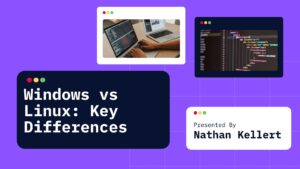Alright, let’s talk about something every software engineering student or pro should know: empirical estimation models. If you’ve ever wondered how do teams figure out how much time or effort a software project will take, then this is it. These models are basically like making an educated guess—but based on past experience and real data.
Not just vibes 😄
Empirical Estimation Models
What Are Empirical Estimation Models?
Empirical estimation models are data-driven techniques used to estimate the effort, cost, or time needed to complete a software project. They rely on historical project data, and they look for patterns to predict how long new projects will take.
So instead of guessing randomly, you’re looking at how similar projects performed and using that info to make smarter calls.
Why Use Empirical Models?
Because wild guessing doesn’t work when you’ve got deadlines, budgets, and a whole team depending on accurate planning. Empirical models help:
- Predict the total time to finish a project
- Estimate how many developers you’ll need
- Avoid under- or over-estimating the workload
- Keep stakeholders happy with realistic deadlines
Types of Empirical Estimation Models
Okay, so there isn’t just one model—there are a few well-known ones. Let’s go through the most popular ones used in software engineering.
1. COCOMO (Constructive Cost Model)
This one’s super popular. COCOMO was introduced by Barry Boehm and is used to estimate cost, effort, and time based on the size of the software (usually measured in KLOC – thousand lines of code).
Variants of COCOMO:
- Basic COCOMO: Very simple, just considers size
- Intermediate COCOMO: Adds other factors like product complexity, developer experience
- Detailed COCOMO: Even more detailed with every phase of development included
So yeah, if you’re estimating a big project with lots of moving parts, COCOMO’s a solid choice.
2. Putnam Model (SLIM)
Putnam’s model is a little more math-heavy and is used to model productivity vs time. It assumes that productivity improves over time, and it uses a curve (called the Rayleigh curve) to model effort distribution.
It’s used more in long-term planning, especially where the software life cycle spans years.
3. Delphi Technique
Delphi isn’t so much a formula-based model—it’s more like a group brainstorming model. You gather expert opinions (usually anonymously), share the estimates, discuss differences, revise them, and repeat until a consensus is formed.
Think of it like crowdsourced estimation but with experts and a structured process.
4. Expert Judgment
Not exactly fancy, but still used a lot. In this model, experienced team members or project managers just estimate based on their gut feeling and past experience. It’s quick but not always accurate unless your experts are spot-on.
It’s usually used in combination with other methods, not alone.
5. Machine Learning or Data-Driven Models
In modern setups, companies use data science or machine learning to train models on historical project data and predict effort or time. It’s still kind of new compared to old-school methods, but it’s growing fast.
Factors Considered in Empirical Models
Empirical models don’t just look at code size. They often take into account:
- Developer experience
- Programming language used
- Product complexity
- Development environment
- Reliability requirements
- Team size
All these things affect how fast or slow a project will go.
Real Life Example (Super Simple)
Let’s say you’re building a website with 10,000 lines of code. Based on past data, you know that similar projects took about 3 months with 2 developers. Using an empirical model like COCOMO, you could estimate the cost, effort (in person-months), and timeline more accurately.
No more guessing games.
Benefits of Using Empirical Models
- They’re based on real data, so more trustworthy
- Reduce chances of over-promising
- Help with better planning
- Improve team and stakeholder confidence
- Useful for project budgeting
Limitations You Should Know
- They depend heavily on accurate historical data
- Not ideal for completely new kinds of projects
- Need constant tuning and updates
- Sometimes overcomplicate simple tasks
Final Thoughts
Empirical estimation models in software engineering aren’t about making perfect predictions—they’re about making smart, data-backed decisions. Whether you’re using COCOMO or the Delphi method, these models help teams stay grounded in reality when estimating project timelines and costs.
Wanna dig deeper into COCOMO with formulas? Or maybe try using it on a mini project? Just say the word!







